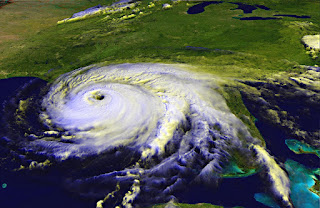Witnessing the damage from Hurricane Ian, the striking failures of local government to prepare their constituents feels all too familiar to residents of Sonoma County, few of whom forget
the night of October 8, 2017. The failure of local government to inform residents in harm's way of the approaching danger sears memories years later.
 |
Image Courtesy National Weather Service. Use pursuant to 17 U.S.C. § 105. |
To see this replicated by Lee County, Florida in the face of Hurricane Ian reminds that information from authorities in a crisis proves often unreliable. Worse, accountability after the fact is usually prevented by a smokescreen of finger-pointing and obfuscation.
This New York Times article, however, pushed across the line from mere spin to outright absurdity. Lee County, Florida, failed to warn citizens in time of the need to evacuate, despite a detailed plan prepared in advance that noted exactly how much warning was required. In defense of the County's behavior, "the county commissioner ... said that one challenge the county faced was that the local schools had been designed to be shelters and that the school board had made the decision to keep them open on Monday."
To be clear, the county commissioner went so far as to blame the local school board for the civil authority failing to prepare citizens from the thoroughly understood threat that precisely this type of storm approaching created. The school board that was, of course, looking to the county for the very advice necessary on whether to stay open or closed.
As a school board trustee myself, I could only shake my head. I note once again that school boards are a convenient target, whether fairly or not, for almost everything.


